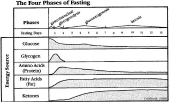Give some serious thought to your pup's diet. Make sure that it is species appropriate. Exclude all grains and other fillers used in most kibbles. Do not skimp on fat.
Feed raw if possible, including bones. A GP pup can easily handle
chicken wings if you supervise and make sure she doesn't snarf them without chewing.
My 70-pound lab-cross mutt is 15 years old and going strong. She eats mostly raw
beef heart, kidney and liver (all items my
local abattoir sells for a song). She handles poultry wings, necks and carcasses as well as rabbit bones with no problems. I throw some canned salmon and eggs into the mix a couple times a week. She is not fond of veggies (though she likes some berries), so I have to be sneaky to get some vitamin variety into her diet. I do sometimes go back to grain-free kibble (love Acana) when my schedule gets in the way of raw feeding.
There are commercial kibble producers coming out with quite good grain-free products, but kibble will never be as good as a BALANCED home-prepared diet. Dr. Karen Becker has lots of videos (and a not-very-good book) about raw feeding and there are more and more vets getting on board with feeding dogs and cats whole foods, just as we do for ourselves and our kids.
We permies types are big on pastured livestock. That is species-appropriate feeding that results in healthier animals (and hence higher quality meat). All the animals who work with us, especially our hardworking LGDs, should be getting the foods they evolved to eat.

















 1
1








 Just sayin.
Just sayin.



















